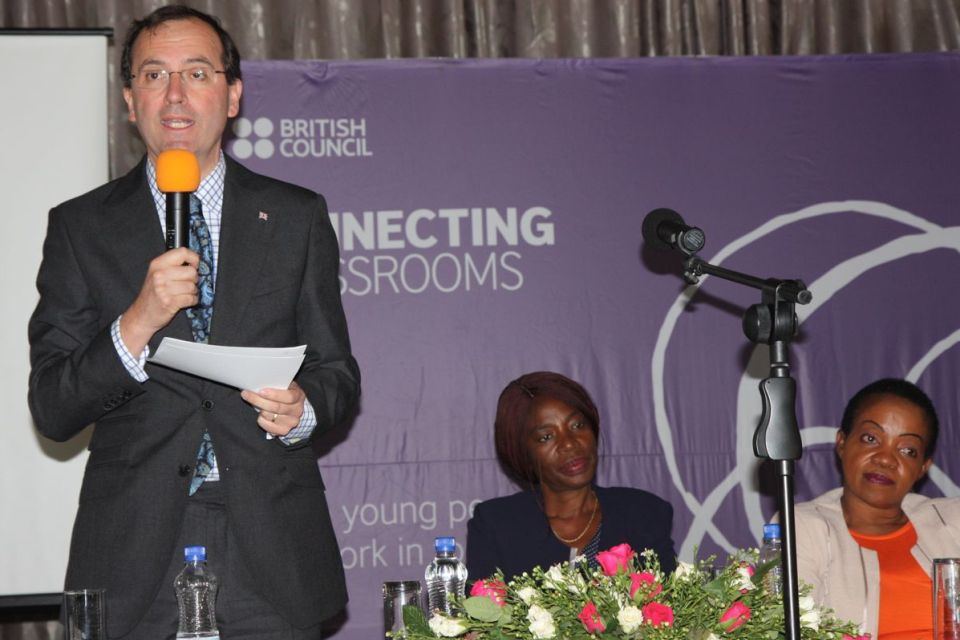British High Commissioner to Zambia's speech at Connecting Classrooms 3 programme launch
Speaking at the launch of the Connecting Classrooms 3 programme in Lusaka today, British High Commissioner Fergus Cochrane-Dyet said:

Connecting Classrooms is the British Council’s international schools programme, which, since June 2012 has been part funded by DfID. The programme not only gives young people the opportunity to work with their peers in other countries, it also helps bring about longer-term change to education systems worldwide.
Connecting Classrooms works with school leaders, teachers, and policy-makers to embed an international dimension and global citizenship in educational practice and policy across the globe, and it supports professional development for teachers and head teachers. In the three years of the Connecting Classrooms second phase, the programme provided an exciting and innovative way of teaching and learning about global development.
It has helped teachers and students from the UK and schools overseas to increase their understanding of their mutual interdependence and to become active global citizens. It added an international dimension to education curricula and policy, helping prepare young people for work in a globalised economy. Connecting Classrooms also provided children and teachers overseas and in the UK with a better understanding of other people and cultures, helping to challenge misconceptions and to building trust through their interactions.
In Zambia, in partnership with the Ministry of General Education and with the close involvement of local education authorities, the programme has reached all the provinces in Zambia, and over 500 schools have participated in the programme so far. I believe the Connecting Classrooms school partnerships programme has been widely recognised and appreciated in Zambia, by the Ministry itself, by other national and local stakeholders, and by the wider communities in which the schools are located.
The programme has also enhanced the teaching and learning of ICT in schools through the 17 digital hubs that have been set up in all the provinces, thereby supplementing the efforts of the Ministry of General Education in providing quality education through the use of modern technology. Given the high extent of poverty still in Zambia, despite high growth rates, it is imperative to improve education service delivery in a sustainable manner to all Zambians. Zambia has made huge progress on access with 1.7 million more children enrolled in school from 2000 to 2010. However, quality and equity remain key concerns.
Since 2012, therefore, the UK has been supporting the improvement of education quality and participation of girls in education in Zambia through effective implementation of the Zambian Government’s Education National Implementation Framework. The UK has invested £37.5m of UK aid to leverage changes in the effectiveness of the Government’s investment. This support has been combined with £21.7 million funding from the Global Partnership for Education, bringing the total support from the UK to £59.2m
It therefore gives me great pleasure that the Connecting Classrooms programme managed by the British Council is continuing into this third phase, which we are formally launching today. I wish the participating schools the best of luck, and I look forward to hearing about the ongoing positive impact on individuals and schools, and on learning outcomes, which I’m sure will result from the programme.
Thank you all for coming today.